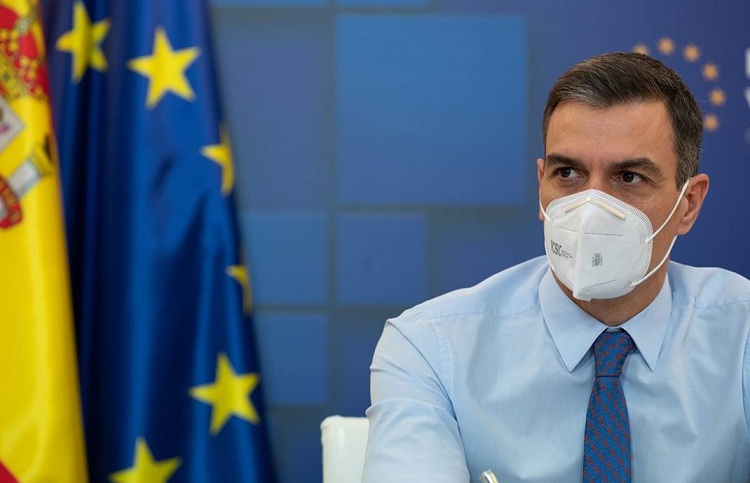Eduardo González
The President of the Government, Pedro Sánchez, will today defend before the rest of the European leaders the proposal signed by Spain and four other Member States to strengthen the capacity to produce vaccines within the European Union itself in order to avoid the “significant delays” that have been recorded in the delivery of doses.
“We urgently need to integrate and strategically steer our value chain to boost vaccine production capacities in Europe”, said the leaders of Spain, Belgium, Denmark, Lithuania and Poland in a joint letter to the other member states and European Council President Charles Michel on Tuesday.
Problems in vaccine production are causing “significant delays” in the supply of doses, which, together with the emergence of new variants of COVID, could “jeopardise the road to full recovery and normal life”, adds the letter, which was launched at the initiative of Denmark in view of today’s European Council and praised by the President of the European Commission, Ursula von der Leyen. The Commission recently set up a Task Force, led by Internal Market Commissioner Thierry Breton, to increase industrial production of vaccines.
The fight against COVID-19, with special attention to vaccines, will be the sole focus of the first day of the European Council, which will begin this afternoon telematically (it was initially planned to be face-to-face, but this was not possible due to the state of the pandemic) and will continue tomorrow with a second day dedicated to security and defence and the Southern Neighbourhood.
According to Moncloa sources, one of Sánchez’s main objectives in this Council is to promote the proposals of the joint charter to develop European vaccine production capacity. The other major topic of this second day, they continued, will be the vaccination certificate proposed by Greece and which has been endorsed, above all, by the southern European countries most dependent on tourism, such as Spain, Italy, Malta, Cyprus and (more cautiously, due to its current status as President of the Council) Portugal.
Since it was proposed by Greece, the idea of the vaccination certificate or passport has generated great reticence in countries such as France, Germany, Belgium, the Netherlands and Luxembourg, which fear that it could discriminate against people who have not yet been able to get vaccinated in summer and have warned that the vaccine does not guarantee one hundred percent, at least for the time being, that there will be no more infections. On the other hand, movements in favour of the proposal have begun to emerge in the Nordic countries, especially in Denmark and Sweden (and, in part, Finland), which have gone from rejection to support in a very short time due to internal pressure from their citizens and businessmen, who are interested in guaranteeing their business trips.
For this reason, according to the aforementioned Moncloa sources, the Spanish government is optimistic that a European agreement will finally be reached that will make the implementation of unilateral corridors (such as those announced by Greece and Cyprus with respect to Israel) unnecessary. In this sense, Pedro Sánchez’s main objective in Brussels will not so much be to get the certificate approved now, which seems impossible, as to remove the political obstacles that prevent the development of the technical details of the possible vaccine passport.
Ultimately, Spain’s goal is to get the certificate in place during the summer campaign, not forgetting other additional control measures such as PCRs at source or antigen testing, especially given that the government’s most optimistic estimates predict that, at most, 70% of the Spanish population will be vaccinated by the end of the summer.






